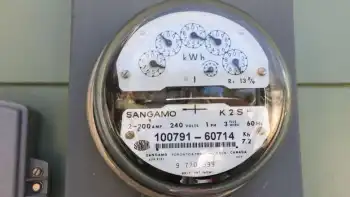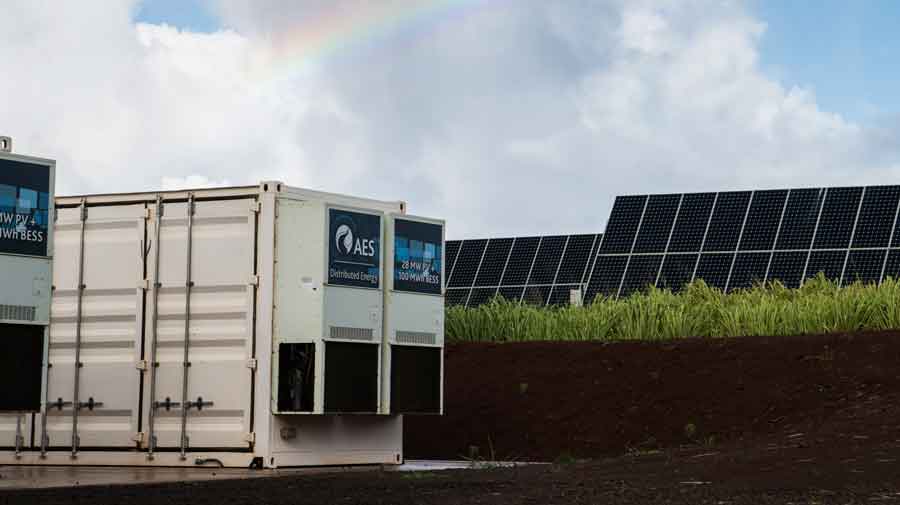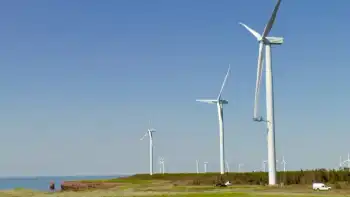Texas to probe rolling blackouts
By Wall Street Journal
NFPA 70e Training - Arc Flash
Our customized live online or in‑person group training can be delivered to your staff at your location.

- Live Online
- 6 hours Instructor-led
- Group Training Available
The Public Utility Commission of Texas asked the state's independent energy-market monitor, Daniel Jones, to conduct a probe to see if power generators, pipeline companies or others broke market rules. Among the questions are whether some firms faked power-plant problems to push prices higher, or were slow to restart plants that were off line.
Mr. Jones, vice president of Potomac Economics in Austin, said he could not comment until his team has completed its investigation, which could take weeks or months.
To be sure, Texas set an all-time winter power demand record one day during the storm, placing historic pressure on power providers.
Electricity-grid officials said Mr. Jones' team will look at price patterns and power-plant outages remembering that, in California's energy crisis of 2000-2001, unscrupulous power generators feigned equipment problems to drive up the price of electricity. A significant number of plants in Texas failed recently, and wholesale electricity prices briefly spiked.
The state Senate committee that oversees the state utility commission will conduct hearings on the blackouts, said its chairman, Sen. Troy Fraser, a Republican whose district includes central Texas.
The organization that runs the Texas grid, the Electric Reliability Council of Texas or Ercot, is considering whether it should require better weatherization at power plants. Trip Doggett, chief executive of the group, said it "will be working with generation owners to understand why and what can be done" to prevent the sort of breakdowns that destabilized the state's electrical network. Among other problems, the breakdowns were caused by equipment freezing and cracking.
Generation companies said they are ready to answer any questions and are confident they followed the rules. Representatives of Luminant and NRG Energy Inc., which own many power plants in Texas, said extreme cold forced outages they couldn't prevent and they got plants back up quickly.
David Knox, spokesman for NRG, said "our guys worked throughout the night" on Feb 2-3 to get the Limestone power plant back in service after a freeze-related problem broke equipment enabling the plant to send power to a substation.
Texas prides itself on a state-regulated electric grid with only limited connections to the rest of the country. The state's grid emergency began on Feb. 2, after a huge winter storm sent demand for electricity and gas soaring. Dozens of power plants that were expected to furnish power suddenly reported operating difficulties.
The state's system is supposed to reward power generators for providing electricity when it is most needed. While most power in Texas sells for negotiated prices between generation companies and retail power sellers under long-term contracts, the grid operator also buys power when more juice is needed and pays an auction price that resets every 15 minutes. When supplies are thin, prices can rise rapidly.
On Feb. 1, one day before the blackouts, Texas had raised the maximum price that the grid operator would pay for electricity to $3,000 a megawatt hour from $2,250. That's triple the price permitted in wholesale eastern markets and about 60 to 100 times a normal Texas price.
Texas had raised the maximum allowable price not because of the impending storm, but as part of the long-term arrangement with its power suppliers.
Spot market prices, which typically are under $50 this time of year, hit the $3,000-a-megawatt hour price cap repeatedly on Feb. 2 and were elevated on surrounding days, too, meaning that some generators reaped enormous profits.
The generators' costs for that power is borne by companies that sell power, other generators and consumers.
Despite the high prices, generators did not supply as much electricity as needed during the bitter cold snap. So the grid operator ordered utilities to initiate rolling blackouts with blocks of customers turned off for periods of 15 to 45 minutes. Rolling blackouts, though inconvenient, are designed to prevent an uncontrolled, catastrophic failure such as happened in the eastern U.S. in 2003.
Recently, as Texas prepared to host the Super Bowl, spot market power prices were back below $30 a megawatt hour.
Officials still are trying to figure out what caused so many power plants to report problems recently. Ercot's Mr. Doggett said generators complained about equipment failures caused by temperatures that were in the single digits as well as natural-gas shortages, meaning some couldn't get the fuel they needed to run power plants.
State officials reacted with disbelief that a region with enormous natural-gas production capability and storage fields should have been caught short.
Gas transmission companies complained that supplies were low, due to cold-related problems at gas wells, storage fields and pipelines. El Paso Corp. and Transwestern issued emergency notices that warned utilities and industrial customers not to use more gas than they'd purchased.
Texas produces about a third of the nation's gas, so its problems led to disruptions recently—to California, Arizona and New Mexico, where the governor declared a state of emergency and ordered National Guard troops to help gas crews restore service.
Ben Feilner, an engineer for the White Sands missile range in New Mexico, said his home in Alamogordo lost electric service recently. "We have winter weather with snow and ice all the time, but this isn't a normal occurrence," he said.
Low gas pressure forced two California utilities to curtail gas deliveries to about 100 big industrial customers, including some power plants. The California grid operator was able to line up power plants to replace the 1,400 megawatts of capacity in the San Diego area that was lost, a spokeswoman said.











